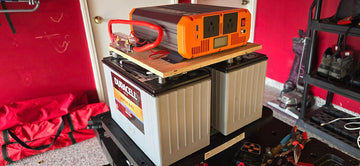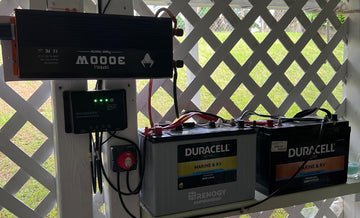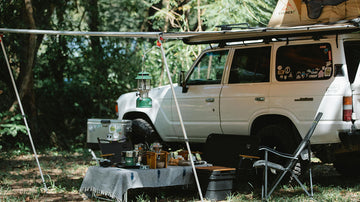8D batteries are attracting attention due to their high capacity and deep cycle capability, especially in heavy-duty applications and uninterruptible power supply (UPS) systems. This article will take a comprehensive look at the definition, applications, advantages and disadvantages of 8D batteries and how they compare to other battery types, as well as their cost-benefit analysis.
What is an 8D battery?
An 8D battery is a large lead-acid battery typically used where high capacity and deep cycling are required. The name ‘8D’ refers to the size specification of the battery, which is typically a 12V battery weighing up to 150 lbs (approximately 68 kg) with a capacity of 160Ah to 230Ah. 8D batteries are designed to withstand long periods of high-current discharging, making them ideal for heavy-duty industrial applications.
These batteries typically have the following features:
- Deep cycle design: capable of frequent deep discharging and recharging, suitable for equipment that requires a continuous supply of power.
- High durability: Corrosion-resistant materials are used to extend battery life.
- Reliable current output: capable of providing a stable current supply, suitable for equipment with high power requirements.

Applications of 8D batteries
8D batteries are used in a wide range of applications, the following are some of the main uses:
- Heavy Duty Vehicles: such as trucks, school buses, etc. 8D batteries provide strong starting current and reliable power support, especially for lighting and power backup under extreme conditions.
- Solar energy storage systems: In renewable energy systems, 8D batteries are used to store electricity generated from solar energy to supply power when needed.
- Large watercraft: such as yachts and cargo ships, the batteries support electronic equipment and power systems.
- Communication and UPS systems: used to ensure network stability and to protect equipment in the event of a power failure.
Pros and Cons of 8D Batteries
Advantages
- High capacity and current supply ability: meet the needs of heavy equipment and long time operation.
- Durability and safety: Compared to smaller batteries, 8D batteries are more capable of withstanding harsh operating environments.
- Ability to adapt to deep cycling: able to maintain performance after many deep discharges, suitable for frequent charging and discharging occasions.
Disadvantages
- Higher price: Higher initial investment cost compared to other types of batteries.
- Heavier: Weight may affect the total load of some equipment, such as in large vehicles.
- Maintenance requirements: Some 8D batteries are liquid batteries that require regular refilling and maintenance, which may add complexity to usage management.
Types of 8D Batteries
8D batteries can come in several different types and variants. Here are some of the main types of 8D batteries:
1. Starting Battery
- Characteristics: Mainly used to provide a high starting current, suitable for starting an engine. Usually used in cars, trucks and other heavy equipment.
- Applications: Heavy duty vehicles, medium commercial vehicles, etc. Mainly used for instantaneous high current starting.
2. Deep cycle batteries
- Characteristics: Capable of multiple deep discharges and recharges, designed to provide stable power for long periods of time.
- Applications: solar energy storage systems, uninterruptible power supplies (UPS) for power supply systems, electric vehicles, etc.
3. Dual purpose batteries
- Characteristics: Both starting and deep cycle capabilities, able to support long discharge times while requiring high starting currents.
- Applications: RVs, yachts, campers, etc., suitable for a variety of different uses of power needs.
4. Maintenance and Maintenance-free Batteries
- Maintenance type: Requires regular inspection and addition of electrolyte.
- Maintenance-free: designed as a closed structure to avoid routine maintenance, using Absorbed Glass Mat (AGM) or Gel Cell technology.
5. AGM batteries
- Characteristics: Use of glass fibre mat inside the battery to absorb the electrolyte, improving efficiency, reducing the risk of leakage and making it safer to use.
- Applications: Many deep cycle and starting applications, especially in environments requiring high safety and low maintenance.
6. Colloidal Batteries
- Characteristics: The electrolyte is converted into a gel, which further enhances safety, reduces outgassing, and is able to maintain stability under extreme conditions.
- Applications: Applications with high deep cycle requirements, such as solar and wind energy storage.
8D Battery vs 4D Battery
4D batteries are another common type of lead-acid battery that typically have smaller capacities and are suitable for light duty vehicles and small equipment. Compared to 4D batteries, 8D batteries offer higher capacity and discharge capability for heavy-duty applications. 8D batteries are clearly more advantageous for applications that require high current and continuous power for long periods of time.

8D Batteries vs Conventional Lead Acid Batteries
8D Battery VS Lithium Battery
In terms of performance, Li-ion batteries usually have higher charging and discharging efficiency and longer cycle life, often reaching more than 2,000 cycles, while the cycle life of 8D batteries is usually 800-1200 cycles. In addition, Li-ion batteries charge faster and can be recharged in a shorter period of time, making them suitable for frequent use scenarios. Li-ion batteries perform better in extreme temperatures and have higher durability, while lead-acid batteries have a significant drop in performance at low temperatures.
In terms of cost, 8D batteries are typically bought at a price between 200-400, while Li-ion batteries are more expensive, usually costing
800 or more, even up to 2000 or more, depending on capacity and brand. However, lithium batteries may reduce the total cost of ownership in the long run due to their longer life and lower maintenance requirements.
4. Maintenance requirements
5. Application Scenarios
Lithium batteries can replace 8D batteries
2. Heavy Equipment and Commercial Vehicles
Some modern heavy equipment (e.g., electric forklifts, construction equipment, etc.) is starting to use Li-ion batteries instead of traditional lead-acid batteries, including 8D batteries. Lithium batteries offer better discharge performance and longer life under high load conditions, allowing equipment to operate more efficiently and with fewer replacements.
3. Solar Energy Storage Systems
Lithium batteries can replace 8D batteries as the storage unit in a home or commercial solar system. The higher efficiency of lithium batteries is more suitable for frequent charging and discharging scenarios, and their longer service life and less maintenance requirements make the overall cost-effectiveness better.
4. Emergency and Backup Power
For some emergency power systems (e.g. medical equipment, communication equipment, etc.) that require high reliability and fast charging, Li-ion batteries offer higher energy density and long cycle life, making them suitable for mission-critical backup power.
5. Drones and mobile devices
Li-ion batteries are the best choice for UAVs, portable electronics and other mobile devices due to their light weight and high energy output. In contrast, 8D batteries are not suitable for use in these devices due to their size and weight.
6. High-performance power tools
Many modern power tools (e.g., drills, chainsaws, etc.) are gradually adopting lithium batteries, replacing the traditional 8D batteries. Lithium batteries provide better performance and range for the tools and are ideal for high intensity work environments.
How to extend the life of 8D batteries
- Regular maintenance: monitor the electrolyte level of the battery and add the right electrolyte in time to prevent the battery from drying out.
- Keep charging: Avoid over-discharging the battery and charge it regularly to maintain its capacity.
- Suitable working environment: Ensure that the battery operates in a dry and suitable temperature range, avoiding extreme temperatures.
- Avoid deep discharge: Although 8D batteries are designed to withstand deep cycling, always keeping them at 30%-80% charge can extend their life.
Are 8D batteries worth it
Overall, 8D batteries are a valuable option for specific applications due to their high capacity and deep cycle capability. Despite the high initial investment, 8D batteries show their irreplaceable advantages in heavy equipment and industrial applications that require stable power for long periods of time. For users on a modest budget, 8D batteries are a worthwhile investment in a power solution.
FAQs
What types of vehicles are 8D batteries suitable for?
8D batteries are suitable for heavy vehicles such as trucks, school buses and large machinery.
What are the maintenance requirements for 8D batteries?
8D batteries need to be checked regularly for electrolyte levels, maintained in a proper state of charge, and avoided from over-discharging.
What is the average service life of an 8D battery?
Under proper maintenance and usage conditions, the average life of an 8D battery can be 4 to 6 years.
How can I tell if an 8D battery needs to be replaced?
Confirm that the capacity of the battery is not reduced, the vehicle is difficult to start or the equipment runs erratically.
Check the appearance of the battery for swelling, leakage or corrosion.
Perform a load test to see if the battery behaves normally under load.
What is the environmental treatment of 8D batteries?
8D batteries are considered hazardous waste and need to be disposed of properly in accordance with local regulations. Many retailers and battery recycling outlets offer recycling services and encourage the disposal of used batteries to professional organisations.













